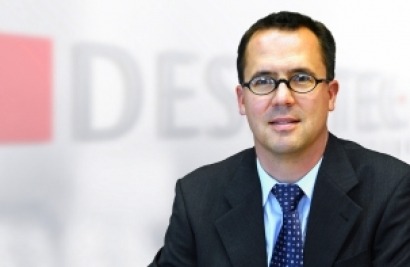
According to the International Energy Agency, carbon dioxide emissions are higher than they have ever been. At the same time, discussion about how to implement the available solutions to the climate crisis has been marginalised. In light of this, the Director of the Desertec Foundation, Dr. Thiemo Gropp, says “we must now turn our focus to the available solutions and the measures necessary to speed their global implementation. A rapid worldwide transition to a renewable energy supply is such a solution”. Gropp argues in a statement released today that such a shift in the global energy model would not only decarbonise our energy supply and meet the rising demand of a growing global population, but would also decouple economic growth from demand for finite fuel resources, thus making an effective contribution to global poverty reduction.
Gropp says the United Nations “Green Climate Fund” could be the key to accelerating this transition to renewable power by providing the financial support and long-term certainty necessary to spur investment in its rollout. “It would enable developing and emerging economies to meet their fast-growing demand for electricity by building the infrastructure to utilize their sustainable sources of energy, bringing with it the opportunity to develop new industries and jobs,” he says. “Developed nations would benefit from the boost to their green technologies and services. In the short term, such investment would stimulate the global economy whilst also laying the foundations for our long-term prosperity. Setting up an international climate protection fund would thus pay for itself many times over. Not only would it protect the climate, it would also bring economic development and increased security.”
However, the Desertec executive warns that the establishment of this “Green Climate Fund” cannot wait as planned until 2020 and certainly cannot, as proposed in Durban, depend upon an agreement on the follow up to the Kyoto Protocol. “The clock is ticking. The IEA stated late last year that the decisions we make on our global energy supply in the next five years will determine whether or not we can prevent runaway climate change. We will not do so through seven more years of negotiation,” he underlines. “If necessary, we must form a coalition of the willing with international commitment from certain countries or blocs of countries to work together to harness renewable energies where they are at their most abundant and can therefore provide power most cheaply.”
“At the onset of the financial crisis in 2008, politicians didn’t spend years trying to establish worldwide consensus on who should shoulder exactly how much of the burden. Instead, they reacted quickly to put together rescue packages that pumped billions into the world economy. Climate change is an even greater emergency. We are in the midst of a climate crisis that threatens to increase pressure on already scarce natural resources and leave swathes of the globe uninhabitable causing mass migration and conflict. Here too there is an urgent need for a political response that delivers results before it is too late,” Gropp says.
“If our governments are sincere about fulfilling their responsibility to future generations, they must act now,” he concludes.
For additional information:

